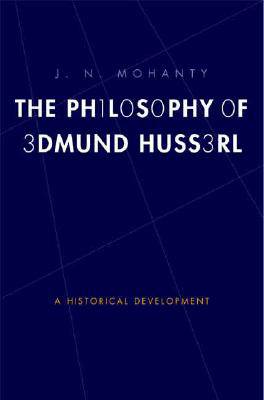
- Retrait gratuit dans votre magasin Club
- 7.000.000 titres dans notre catalogue
- Payer en toute sécurité
- Toujours un magasin près de chez vous
- Retrait gratuit dans votre magasin Club
- 7.000.0000 titres dans notre catalogue
- Payer en toute sécurité
- Toujours un magasin près de chez vous
Récompenses
Description
Edmund Husserl (1859-1938), known as the founder of the phenomenological movement, was one of the most influential philosophers of the twentieth century. A prolific scholar, he explored an enormous landscape of philosophical subjects, including philosophy of math, logic, theory of meaning, theory of consciousness and intentionality, and ontology in addition to phenomenology.
This deeply insightful book traces the development of Husserl's thought from his earliest investigations in philosophy--informed by his work as a mathematician--to his publication of Ideas in 1913. Jitendra N. Mohanty, an internationally renowned Husserl scholar, presents a masterful study that illuminates Husserl's central concerns and provides a definitive assessment of the first phases of the philosopher's career.
Spécifications
Parties prenantes
- Auteur(s) :
- Editeur:
Contenu
- Nombre de pages :
- 464
- Langue:
- Anglais
- Collection :
Caractéristiques
- EAN:
- 9780300124583
- Date de parution :
- 01-05-08
- Format:
- Livre relié
- Format numérique:
- Genaaid
- Dimensions :
- 166 mm x 236 mm
- Poids :
- 802 g









